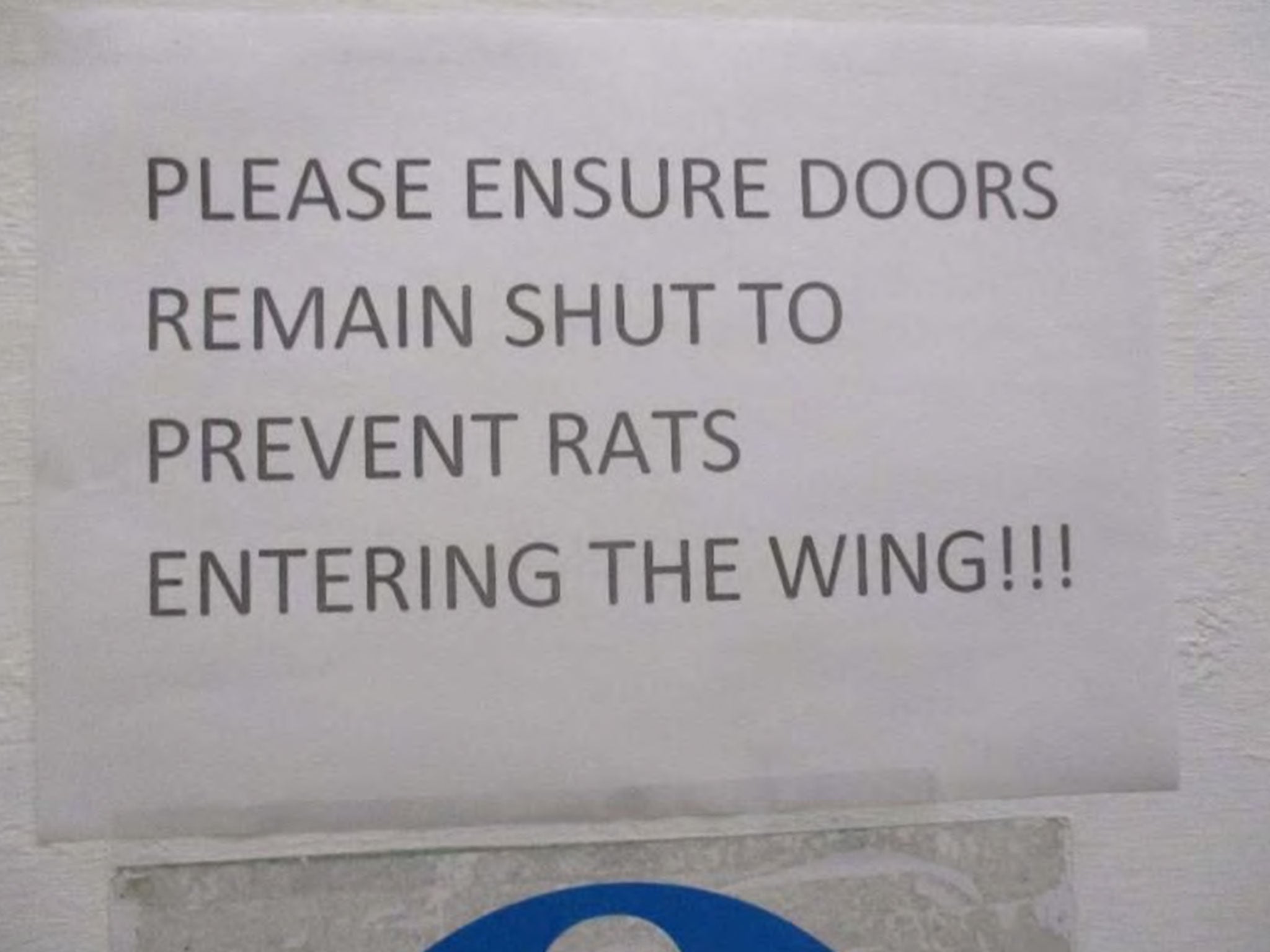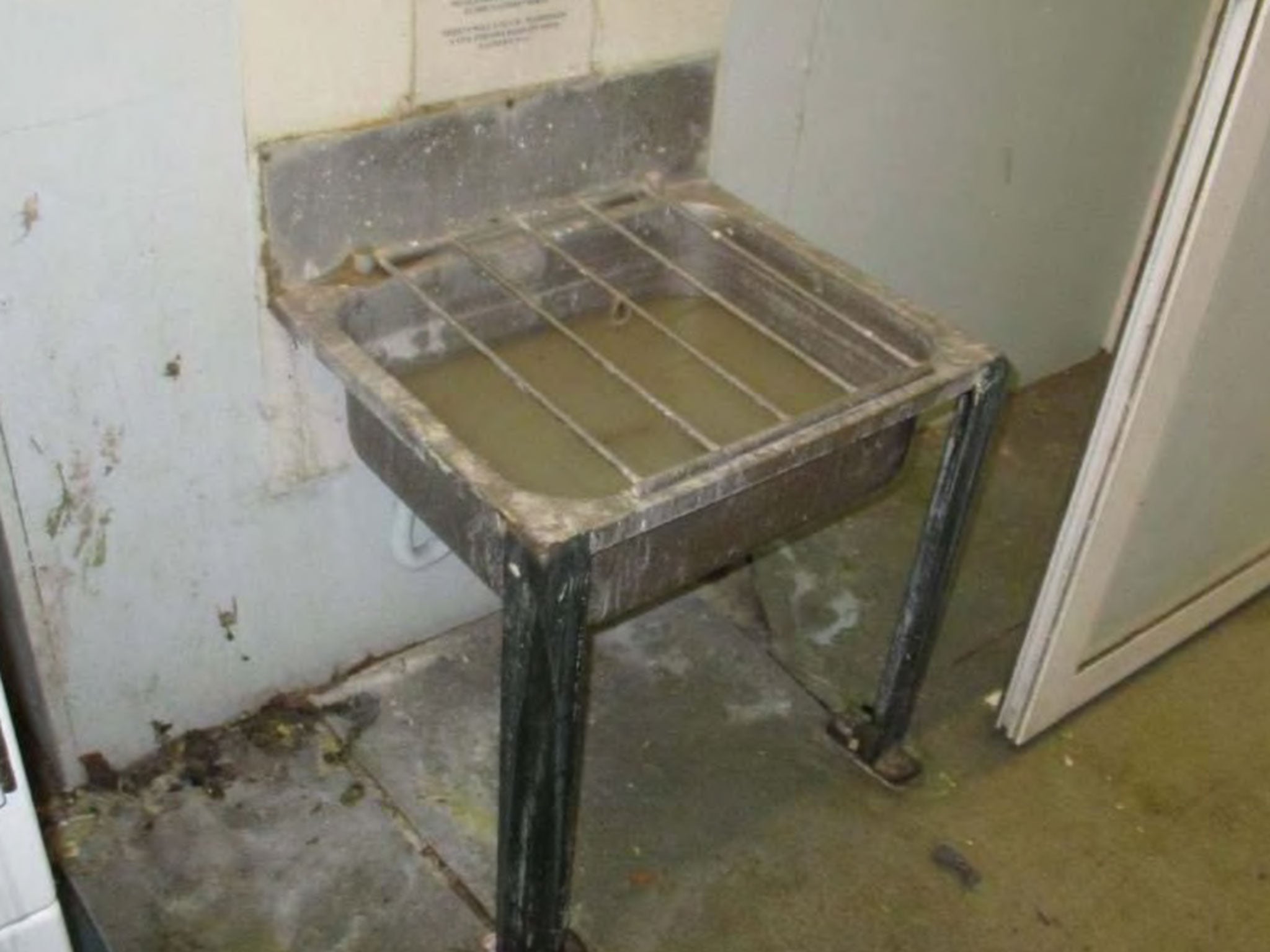Prisoner found killing rats in 'dirty and vermin-infested' Bedford prison, report finds
Inspectors find inmates smoking drugs as officers' control 'tenuous'

Your support helps us to tell the story
From reproductive rights to climate change to Big Tech, The Independent is on the ground when the story is developing. Whether it's investigating the financials of Elon Musk's pro-Trump PAC or producing our latest documentary, 'The A Word', which shines a light on the American women fighting for reproductive rights, we know how important it is to parse out the facts from the messaging.
At such a critical moment in US history, we need reporters on the ground. Your donation allows us to keep sending journalists to speak to both sides of the story.
The Independent is trusted by Americans across the entire political spectrum. And unlike many other quality news outlets, we choose not to lock Americans out of our reporting and analysis with paywalls. We believe quality journalism should be available to everyone, paid for by those who can afford it.
Your support makes all the difference.An inmate was found killing rats in his own cell at a “dirty and vermin-infested prison” during an inspection visit, it has emerged.
HM Inspectorate of Prisons (HMIP) found vermin, rats, pigeons and cockroaches “everywhere” at HMP Bedford, which has been in special measures since last May.
“One segregated prisoner caught and killed a number of rats in his cell during the inspection,” a report read.
“A sign on one wing read: ‘Please ensure doors remain shut to prevent rats entering’.”
The watchdog issued an “urgent notification” to the government following an unannounced inspection from August to September.
Five prisoners have killed themselves in the past two years at HMP Bedford, amid rising self-harm, violence, drug smuggling and debt.
“The violence was largely fuelled by drugs, and the prisoners – many of them living in fear – were confined for unacceptable lengths of time in cells that were all too often infested with vermin, dirty and unfit to be occupied,” said chief inspector Peter Clarke.
“The prison has continued on a seemingly inexorable decline … it used to have a reputation as a good local prison, and the collapse in standards is as sad as it is inexcusable.”
A report said 39 per cent of inmates were being locked in during the working day, and that too many prisoners left without additional education or skills.

A shortage of facilities meant a wheelchair-bound amputee had only five showers last year, toilets did not flush, cells damaged and communal areas “dark and dirty”.
Inspectors raised concern that staff control over prisoners, who rioted over poor conditions in 2016, was “tenuous” and said discipline was poor.
They saw prisoners smoking openly in the jail unchallenged, where the smell of cannabis and other burning substances pervaded some wings.
One prison officer told inspectors: “If it’s just cannabis, it’s a good day.”
Inspectors said the “extremely inexperienced” staff were doing their best but were out of their depth, with 77 per cent of available officers having less than one year’s experience.
The use of force was found to be high and inspectors called the jail “fundamentally unsafe” after an “alarming” rise in violence of all kinds.
More than half of prisoners had been at HMP Bedford for three months or less and more than two thirds said they had felt unsafe.
Almost half of all prisoners surveyed said that it was easy to get illicit drugs at the prison, and a fifth said that they had developed a drug problem while inside.
HMP Bedford, which dates back to 1801, held 420 inmates during the inspection but a “normal” capacity of 317, with cells overcrowded.

The prison was assessed as “poor” for safety, respect and purposeful activity and “not sufficiently good” in rehabilitation and release planning.
HM Prison and Probation Service (HMPPS) had made the prison subject to an improvement plan in September 2016, but by May 2018 officials found insufficient progress and the prison was placed in special measures.
Mr Clarke said the prison “fulfils none of the basic objectives of imprisonment” and added: “The lack of credible plans to address the dangerous shortcomings was inexplicable given the steady decline over many years.”
The Howard League for Penal Reform said judges’ continued use of short prison sentences was driving problems.
Chief executive Frances Crook said: “Special measures have been in place for two years, and still this overburdened, under-resourced, rat-infested jail is being forced to look after more men than it is designed to hold.”
Labour’s shadow justice minister, Imran Hussain, accused the government of losing control of Britain’s prisons following years of budget cuts.
“This is yet another damning report that lays bare the scale of the emergency in our prisons system,” he added.
“The government must take responsibility for this crisis of its making and instead of tinkering at the edges, it must launch an emergency action plan backed by new funding.”
Michael Spurr, chief executive of HMPPS, said inspectors’ previous recommendations had not been ignored but “pressures on the prison meant that progress had been difficult”.
“Since the inspection, we have reduced prisoner numbers further, improved cleanliness and strengthened the management team to provide greater support to staff,” he added.
Rory Stewart, the prisons minister, said he has personally followed up on the report’s recommendations.
“There has been significant progress at Bedford to make it safer and more decent,” he added.
“Increased security is in place to help reduce drug use, and violence in turn, and inexperienced staff are now being better supported and given extra training to ensure the prison runs effectively.
“We have appointed a highly experienced and effective new governor. And I am confident that he and his senior management team and the excellent prison officers will ensure that the prison’s turnaround will continue.”
Join our commenting forum
Join thought-provoking conversations, follow other Independent readers and see their replies
Comments